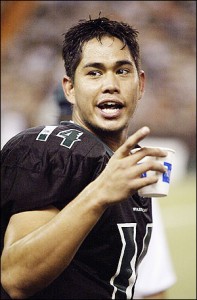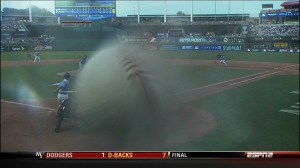I fully expected November 8, 2012, to be a fun day. I was on vacation, a week-long trip to New York, which I hadn’t been back to in a couple of years. Although I had events planned during the evenings, my days were unstructured. This was on purpose – I wanted the freedom to explore the city without having to adhere to the rigid structure that vacations can sometimes fall into.
Plus, my friends were all working during the day, anyway.
After I woke up, I looked at the things that I wanted to cross off my list. I had already visited the sections of Manhattan I used to frequent when I lived there, and eaten much of the food I specifically wanted to find. But I hadn’t yet been to the 2nd Avenue Deli, which in the years since I lived in NY had moved out of the East Village and now had two locations, including one on the Upper East Side, not too far from my friend’s apartment – just far enough that it would make a nice walk and let me take in more of the city, but not so far that I’d be annoyed to walk there. Perfect.
I headed up 1st Avenue toward the deli, taking my time, enjoying the sounds and smells that make Manhattan such an interesting, unique environment. People and cars rushed about, everyone in a hurry to their destination. A few joggers ran past, ducking in between people in suits and women with strollers and construction workers.
Eventually I arrived at the deli and looked around – it was the middle of the lunch rush, and it was packed. I told the waitress that I’d be happy to sit at the counter, which was the only available space (and, given that I was by myself, likely the only space they would have offered). I found a seat, took off my coat and hat, and ordered – a half corned beef sandwich (because of course), and a bowl of matzo ball soup, which I had been craving and which was perfect for the chilly day.
As I waited for my food, I looked around, taking in the conversations, the clinking of glasses and the shouts of the staff as they moved orders through at an impressive pace. Before long, my soup arrived – steaming and inviting, the matzo ball looked a little like an unstitched baseball sitting in translucent broth.
After doing what almost every tourist my age does (take photo on iPhone, post to Facebook with pithy comment in description), I began to eat the soup – it was just as I remembered it. The chicken soup was light, not too salty, and the matzo ball was firm and soaked up the broth. I tend to be a fast eater (trained at my grandmother’s house, where if you ate too slow, all the food would be gone and you wouldn’t get seconds), but this I wanted to enjoy. I ate slowly, trying to enjoy the whole experience – especially since I didn’t know when I would be back in New York again. It was as though I was in a trance, and for a moment, everything else faded from view – it was just me and that soup.
“Best matzo ball soup in the city, right there.”
Snapped back to the present, I looked over to my left for the source of the gravely observation, and saw an elderly rabbi smiling back at me, a few seats down the counter.
“I missed it. I used to go to the old 2nd Avenue Deli, years ago,” I said, although part of my brain was wondering whether this would be a long (and thus soup-cooling) conversation.
But our exchange was brief – he asked where I was visiting from, and we talked about the surprising snow flurry that had passed through earlier in the week. After a bit, he (perhaps sensing my initial apprehension, or perhaps just understanding how good the soup really is) told me that I’d better finish my soup before it got cold. I smiled at him and went back to eating. A nice, brief encounter with a rabbi I probably would never see again.
As I finished my lunch, one of the waiters dropped off a bag of take out for the rabbi. He thanked the waiter and smiled at me.
“Best part of this job is the food.”
It was then that the rabbi explained that he was the one who made sure that everything was kosher at 2nd Avenue Deli – a job he had done back when the deli was still in the East Village, near his synagogue on 6th street – a synagogue that I had walked past numerous times (but never actually entered) when I lived in the neighborhood.
On any other day, perhaps, one of us might have said “well, it’s time to go, it was nice meeting you.” I had finished my meal. The food he was waiting on had arrived. Neither of us had any connection to the other, beyond this brief, chance meeting. But instead, we continued to talk – about the city, about life, about nothing in particular. He told me how he had moved to New York “for six months,” and how those six months became forty-four years. I talked about my pursuit of a career in comedy, which he approved of, saying:
“Oh, that’s good. You know, you have to laugh. That’s the main thing in life. You have to laugh. That’s how you make it through.”
The waiter brought us both egg creams, which we enjoyed as we continued to talk. He told me a little about how the gentrification of the East Village was threatening the synagogue – with a dwindling population, and the value of real estate in the area, developers were trying to take over the land and replace it with apartments. He noted that the city was working to help protect the site as a historical landmark, which would afford the building some protection – although he seemed to have some reservations with those preservation efforts, as well. He talked about how much the city had changed, and specifically, how the East Village had changed. I said little. I didn’t want to interrupt the crash course in the history of the neighborhood I once called home.
Then, at a certain point, we both felt it – although neither of us was in a rush to get anywhere, we had reached the end of the conversation. We shook hands (and finally exchanged names – he introduced himself as Rabbi Ackerman) and he invited me to visit him at the synagogue the next time I was in New York. I promised that I would. As he stood to go, he smiled at me.
“You’re not going to forget this. I can tell. I won’t forget this either. I have a good memory, you know.”
I watched him as he walked out the door, leaning only slightly on his cane, and out to the busy street. I paid for my lunch and went about the rest of my day.
I didn’t forget our conversation. Through the past several months, which at times have been chaotic and frustrating, I have (always when I needed it) recalled that conversation, and whenever I do, it helps put things into perspective. It serves as a reminder of how a chance meeting can lead to something interesting, how a brief conversation can be impactful, and how you never know how you’re going to affect a stranger.
I never did get a chance to visit Rabbi Ackerman at his synagogue. In June, after a short illness, he passed away at the age of 84. I would have liked to have had another chance to speak with him, to hear more about the old East Village, about life, and perhaps, shared another laugh.

